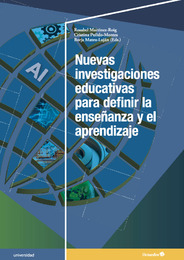Título :
Innovación educativa en planificación contable: juego de roles |
Autor :
AMOROS MARTINEZ, ARACELI 
González Morales, Mónica
Cavero Rubio, José Antonio |
Editor :
Octaedro |
Departamento:
Departamentos de la UMH::Estudios Económicos y Financieros |
Fecha de publicación:
2024 |
URI :
https://hdl.handle.net/11000/35603 |
Resumen :
In the educational realm, continually exploring new methodologies to enhance student learning and classroom experience is crucial, particularly in subjects like accounting, known for their practical focus and the necessity for students to grasp both theoretical and practical components. However, the
traditional teaching approach, relying on lectures and individual exercises, often disconnects students
from applying knowledge practically, leading to a lack of interest and motivation. In response to this
challenge, role-playing was introduced as an innovative strategy in the Accounting Planning subject,
immersing students in simulated business scenarios to confront challenges, make decisions, and experience consequences. Beyond fostering active participation, role-playing enhances critical and analytical
skills, significantly contributing to students’ preparation for workplace challenges. Evaluating this approach involved two groups: one undergoing continuous assessment through group practices (role-playing) and another following traditional teaching method. The analysis revealed significant differences
in academic performance, with the continuous assessment group outperforming the traditional group.
Student perceptions, gathered through a survey, indicated a positive experience with the continuous
assessment approach, emphasizing its utility in understanding content and developing communication
and problem-solving skills. These findings underscore the effectiveness of group practices, particularly
role-playing, in improving learning in Accounting Planning, supporting the notion that implementing
innovative educational methodologies can significantly enhance education quality and student engagement.
|
Palabras clave/Materias:
teaching in accounting
higher education
educational innovation
role-playing
cooperative learning |
Área de conocimiento :
CDU: Ciencias sociales |
Tipo de documento :
info:eu-repo/semantics/bookPart |
Derechos de acceso:
info:eu-repo/semantics/openAccess
Attribution-NonCommercial-NoDerivatives 4.0 Internacional |
Publicado en:
Localización: Nuevas investigaciones educativas para definir la enseñanza y el aprendizaje, págs. 3 - 15 |
Aparece en las colecciones:
Capítulo de Libros- Estudios Económicos y Financieros
|
 La licencia se describe como: Atribución-NonComercial-NoDerivada 4.0 Internacional.
La licencia se describe como: Atribución-NonComercial-NoDerivada 4.0 Internacional.
.png)
